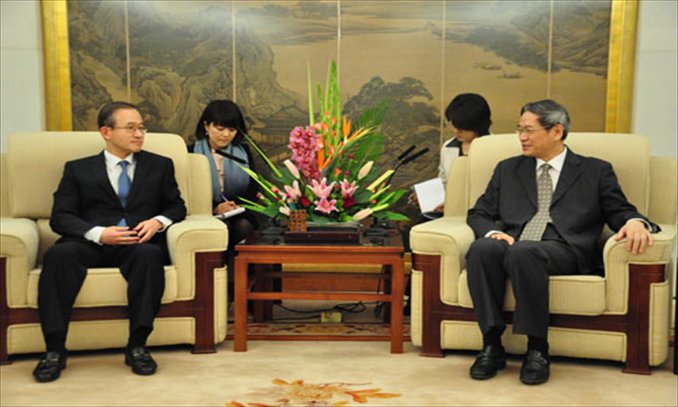China ‘diplomatically cornered’ by N.Korea nuclear test plan

China has been diplomatically cornered by North Korea's attempt to go ahead with a third nuclear test, analysts said, as South Korea sent its chief nuclear envoy to Beijing and urged China to exert its influence on the North.
South Korea's chief negotiator of the Six-Party Talks, Lim Sung-nam, held talks with Chinese deputy foreign minister Zhang Zhijun and Chinese special envoy for Korean Peninsula Affairs Wu Dawei in Beijing on Monday, China's foreign ministry said on its website, without revealing details about the talks.
According to the Yonhap News Agency, Lim called on China to exert every possible means to persuade North Korea to scrap its planned nuclear test, and if North Korea disregards the objections of the international community, China should join the ranks of the US and South Korea in significantly ramping up sanctions against Pyongyang.
Jeung Young-tae, a senior research fellow with the Korea Institute for National Unification, said China must take visible actions to materialize its verbal objections to the North's nuclear adventurism.
"In the face of a possible new arms race in Northeast Asia following a (looming) nuclear blast, China must assert its role as a responsible regional leader that could help avert such a nightmarish prospect in the region," Jeung said.
Nevertheless, a South Korean embassy official told the Global Times that Seoul is well aware that North Korea rarely listens to Beijing's advice. What South Korea expects is just pressure from China in line with the other participants of the Six-Party Talks to deliver a clear message before it attempts an audacious and defiant third nuclear test, the official said.
"This is a grave test of China's diplomacy," said Zhang Liangui, a professor on Korean Peninsula issues at the Party School of the Communist Party of China Central Committee.
If China fails to persuade North Korea to give up its plan for a fresh nuclear test or fails to deliver immediate and severe sanctions that could substantially hit North Korea after the test, China will forever lose the chance to play a dominant role on the Korean Peninsula nuclear issue and all the previous efforts to realize the denuclearization of the peninsula will have been in vain, Zhang said.
Yonhap Monday quoted a government source in Seoul as saying that senior North Korean officials have recently visited the western tunnel at the Punggye-ri nuclear site in the North's northeastern tip, further fueling speculation about an imminent test.
In a telephone conversation on Sunday, new US Secretary of State John Kerry and South Korean foreign minister Kim Sung-hwan agreed "on the need to ensure that North Korea understands that it will face significant consequences from the international community if it continues its provocative behavior."
South Korea's president-elect Park Geun-hye also said Monday that North Korea would gain nothing but "strong" punishment from the international community.
The US and South Korea launched a three-day joint naval exercise involving a US nuclear submarine, on Monday.
China's foreign ministry spokeswoman Hua Chunying Monday once again called on related parties to refrain from actions that would escalate tensions in the region.
Agencies contributed to this story
Read more in GT Special Coverage:
